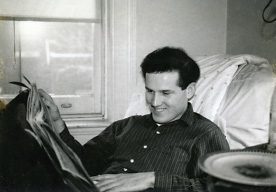How I Got to Be Whoever It Is I Am (24 page)
In my experience most men feel women are too critical, and most women feel that men lack sensitivity. I’m sure some would
say men are too critical, and women lack sensitivity. It’s all true on any given day.
I heard one of my favorite comedy lines from the comedian Mal Z. Lawrence. A man gets up in the morning, crosses around the
foot of the bed, his wife lifts her sleep mask and looks at him. The man says, “Good morning, dear, have I offended you in
any way?”
However, in my personal experience, I know way more offensive men than women, but since I’ve never gotten out and around that
much, who knows?
I do know this. The one essential ingredient a marriage must have is the knowledge you can
count
on the other person, no matter what. Other elements of a relationship may vary, but if you aren’t sure you can count on your
partner, and by that I also mean trust, your marriage most likely won’t last. “Count on” to me means trust and goodwill always.
I have that in my marriage, and I feel blessed. At this writing we’ve been married for twenty-five years.
Actually, I feel blessed in many ways. However, unfortunately or maybe in a larger sense fortunately, I am also on a daily
basis agitated by knowing there are thousands of people among our 2.3 million prison population who absolutely should not
be in prison at all! I’ve talked about them earlier in this book, but it’s something I just can’t drop. My intention is to
make people as aware of this as I can, because when this fact becomes better known, this grave injustice and others could
be made right. That’s my biggest goal for the rest of my life.
I
recently came across a diary that I kept for one year in the early 1990s. For the most part, it expresses what I feel today.
Here are some random excerpts, in the order in which they appeared.
• Extraordinarily rare sleepless night.
• Screw people who don’t care about others.
• Startling how quickly I get bored. I was having a conversation with a perfectly good guy. It’s me.
• Writing enormously gratifying.
• On work overload—watch out for compulsive.
• Going to try to slow down, not work nonstop.
• I’m going to keep doing what I’m doing—but at a slower tempo.
• It’s all about effort.
• Saw Jeffrey Lyons at museum. He said, because I do many things, I seem like more than one person. I wonder if people resent
that.
• Love Carol Burnett.
• Happy time with Carol Burnett.
• Nicky’s birthday party wonderful. Elissa did a superb job.
• Great talk with Jack on phone. Absolutely no competitiveness. I’m so lucky to have him as a brother.
• Ran into Schwarzenegger. I asked him if he worked out. He wasn’t amused.
• All in all it’s a wonderful time.
• The filming is going well. Between doing the movie and writing the book, every free moment I’m really engaged which, of
course, is the key.
• All is well. I’ll take this kind of life anytime.
• Try to get company to be considerate of sick actors. SAG needs deputies.
• An excellent period.
• Some people don’t get it. Respect, not aggression, is appropriate toward all.
• Life is excellent. It was a very good year.
What has changed as much as anything in my life is my former naively optimistic point of view. It’s sad for me to finally
realize how few people care about others, how many people don’t mean what they say, and how many don’t do what they say they
will do: “When we say we’re going to make your movie, that doesn’t mean we’re going to make your movie.”
It’s very important to me to do exactly what I say I’ll do, and for people to know they can count on that. My favorite review
came from what the editors of my high school yearbook wrote about me: “Chuck’s a boy we all can trust. As class president
he’s a must.” I’ve always tried to live up to that. It’s a
way
better review than “If you want to know what it feels like to die sitting upright in your theater seat—go see this movie.”
As far as how I spend my time now is concerned, the major difference in my life today is my involvement with prisoners’ issues.
My mind keeps going back to my grandfather sitting on my brother’s bed all those years ago, telling me to better serve my
father, because “his head is mmmmmmm.” That’s the way my head feels today—for different reasons—but agitation is agitation.
Still, as I’ve said, working on behalf of people in prison who shouldn’t be there is the most gratifying thing I do. I consider
myself one of the lucky ones to be given this opportunity to help.
S
o, I’ve been told in print in the early seventies, “It would be sad to think an acting career lay ahead.”
Even though my cable show on CNBC was the highest-rated program in its time slot before or since, and the only show on the
network to be nominated as best talk show every year there were awards, it was canceled.
On the other hand, once in the greenroom of a talk show I was spotted by Ringo Starr, whom I’d never met. He walked across
the room and gave me a big, long hug. Neither of us spoke.
A silent hug from a Beatle can really bolster you, and that’s what we all need to try to do for each other.
I want to thank my editor, Karen Murgolo, who is a most cheerful friend as well as a bright, gracious, and kind editor. I
want to thank Karen’s assistant, the up-and-coming Tom Hardej, for his excellent assistance. He, too, is extremely gracious
and kind.
I want to acknowledge two people who have been in my life on a daily basis for several years: Jim Griffin and Rose Snyder,
my agent and my assistant. They are excellent at their work, but most important, they are friends as well, which, of course,
makes them the best kind of agent and assistant you can have. They are also gracious and kind.
C
HARLES
G
RODIN
is a recipient of the William Kunstler Award for Racial Justice. He gained clemency for four women imprisoned under New York’s
Rockefeller Drug Laws and was cited by Governor George Pataki for helping get those laws changed. He is also the recipient
of the HELP Hero Award for his humanitarian efforts on behalf of the homeless. He is best known for his starring film roles
in
The Heartbreak Kid
,
Midnight Run
, the
Beethoven
films, and dozens of others. He has written six books, including the bestseller
It Would Be So Nice If You Weren’t Here
and compiled
If I Only Knew Then… learning from Our Mistakes.
Mr. Grodin was a commentator for
60 Minutes II
and is currently a commentator for CBS News. He also writes a weekly column for the
New York Daily News
Web site.
One hundred percent of Mr. Grodin’s proceeds from this book will be donated to Mentoring USA, where he has been a longtime
board member. Mr. Grodin is also a mentor.

Grammar school basketball team. I’m standing on the right. Are we serious enough? (Author’s Collection)
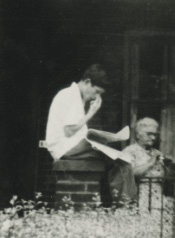
My grandmother and me in Pittsburgh in the early fifties. (Author’s Collection)
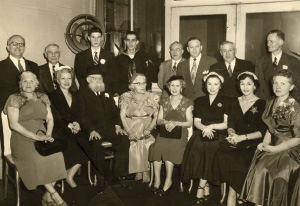
My family. My dad is standing on the far right. My mother is sitting on the far right. My grandfather has the beard, and
my grandmother is to his left. I’m standing behind my grandfather—always a good place to stand. (Author’s Collection)
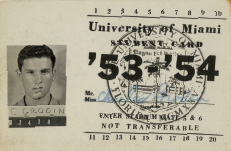
Entering the University of Miami, after my dad died. (Author’s Collection)
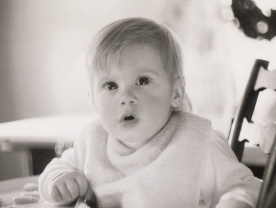
My daughter, Marion, contemplating going into show business. (Author’s Collection)

My daughter, Marion, who’s a headlining stand-up comedienne in New York. (Author’s Collection)
